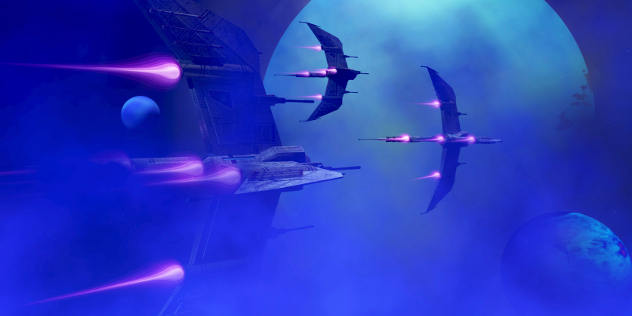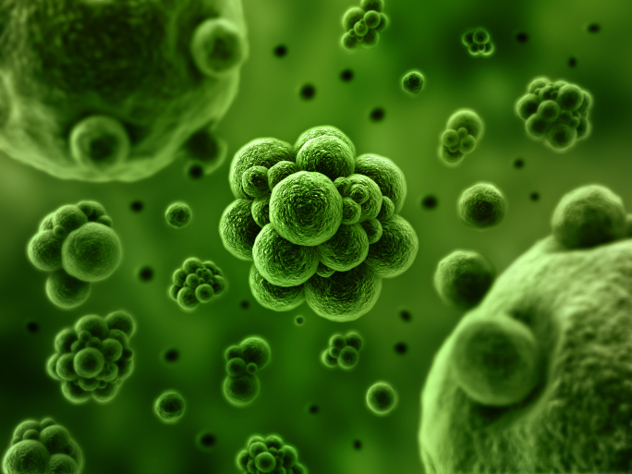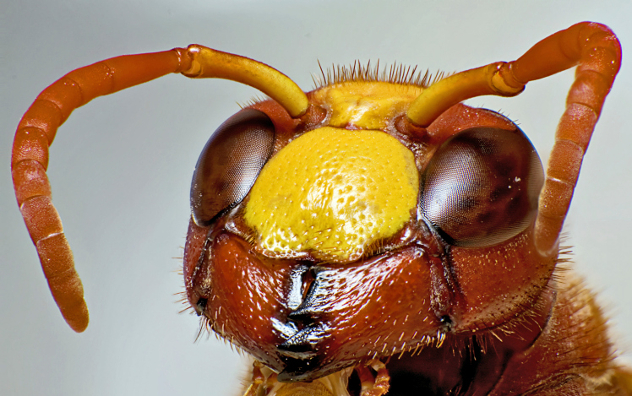 Weird Stuff
Weird Stuff  Weird Stuff
Weird Stuff  Mysteries
Mysteries 10 Tragic Disappearances and Deaths in Joshua Tree National Park
 History
History 10 Ways Childhood Really Sucked in the Old West
 Music
Music 10 Name Origins of Famous Bands from the 1990s
 Religion
Religion 10 Biggest Turnarounds by the Catholic Church
 Weird Stuff
Weird Stuff 10 Unbelievable Times Laws Had Unintended Consequences
 Humans
Humans Ten Historic Women Who Deserve Way More Credit Than They Got
 Movies and TV
Movies and TV 10 Films That Spawned Major Lawsuits
 History
History Ten Times Towns Were Wiped Off the Face of the Earth
 Creepy
Creepy 10 of the Most Disturbingly Haunted Public Houses in the UK
 Weird Stuff
Weird Stuff 10 Niche Subcultures That Are More Popular Than You Might Think
 Mysteries
Mysteries 10 Tragic Disappearances and Deaths in Joshua Tree National Park
 History
History 10 Ways Childhood Really Sucked in the Old West
Who's Behind Listverse?

Jamie Frater
Head Editor
Jamie founded Listverse due to an insatiable desire to share fascinating, obscure, and bizarre facts. He has been a guest speaker on numerous national radio and television stations and is a five time published author.
More About Us Music
Music 10 Name Origins of Famous Bands from the 1990s
 Religion
Religion 10 Biggest Turnarounds by the Catholic Church
 Weird Stuff
Weird Stuff 10 Unbelievable Times Laws Had Unintended Consequences
 Humans
Humans Ten Historic Women Who Deserve Way More Credit Than They Got
 Movies and TV
Movies and TV 10 Films That Spawned Major Lawsuits
 History
History Ten Times Towns Were Wiped Off the Face of the Earth
 Creepy
Creepy 10 of the Most Disturbingly Haunted Public Houses in the UK
10 Traits Aliens Must Have According To Science
If you believe what Hollywood tells us about alien life forms you’ll probably assume they’d be giant, slimy and really, really anti-human. As scientists don’t make a lot of movies, and movie producers aren’t typically awesome at science, this isn’t a very accurate portrayal of the interstellar life that’s at all likely to ever reach Earth.
Don’t get me wrong, it probably still won’t go well for us, but the faces of the creatures that would change our world forever will look very different to how we’ve imagined them. To set the record straight, great minds like Stephen Hawking and his contemporaries have given their opinions on what traits an alien race would have to possess in order to make it across the galaxy and pay a visit to the human homeworld.
10 Aggressiveness

What separates humans from other species on the planet in terms of evolution comes down to a simple principle: aggression. For any species to thrive within a given habitat it has to confront adversity and overcome it. These struggles drive evolutionary adaptation. The dominant life form on a planet (which aliens would almost certainly have to be) must have been able to master their environment.
A paper published by the University of Missouri suggests this means they would be aggressive—they would populate and conquer their surroundings in order to progress. If they are more intelligent than we are, they will likely see us as a resource, the way we view farm animals and their habitats.
9 Explorers

Any life form that reaches Earth will, by definition, be an explorer. Looking to our own culture for clues, we immediately see how unexplored territories are targeted for their resources. We wonder what lands might possess that can help further our causes. Look at Columbus and the Americas, Marco Polo and the East Indies, the Vikings and most of Europe.
According to Stephen Hawking, aliens are likely to seek out other planets in order to colonize them or mine them for resources. Aliens may not come to destroy our planet, but they will in all likelihood seek to exploit what they find to increase their race’s reach, as again this is the hallmark of a developed species.
8 Viral And Bacterial Immunity

It’s a common trope in Science Fiction that aliens, having never encountered Earth bacteria before, will succumb to simple diseases which they have no immunity to. Just look at the pilgrims and conquistadors, and the havoc smallpox and typhus wreaked on unexposed native populations. But conquistadors and Aztecs were both human. According to Seth Shostak, senior engineer from SETI, bacteria are limited to the life forms they are biochemically related to.
Our germs have evolved to survive on our unique DNA. Even viruses and bacterial infections that infect one species on our planet will only rarely spread to another. Dogs don’t routinely get the ‘flu, for example. Any alien life form that invaded earth will likely be immune to earthly diseases, so don’t expect a War of the Worlds solution.
7 They Won’t Eat Humans

What if they want to feed on us? While a scary thought, it’s unlikely. A race advanced enough to achieve space travel surely will have conquered its need to prey on living animals. The journey to earth from any potentially life-supporting planet is incredibly long, and for any species to attempt it they would have to have sustainable food production methods already in place.
Further, the digestive setup of a creature that evolved in a different sector of the universe is not very likely to be compatible with the kinds of proteins found on our planet. It would be inconceivable that the minimal nourishment resources found on our planet would ever justify the energy spent to obtain it. An alien race would already be adept at harnessing energy by that point. So we won’t be cattle.
6 Impersonal Killers

How many people have ever moved into a new home and found a colony of bugs as an extremely unwelcome surprise? How many of those people then squished each and every offender by hand, swinging the shoe of death over and over again until the job was done? No, most people would call an exterminator to gas the home and lay down poisons for the survivors.
Aliens, like any advanced species, will make use of technology to their advantage. They will probably eradicate the life forms on a planet they are considering for their own uses before landing. Forget skies filled with single-pilot saucers firing laser beams at the Capitol Building. Expect a quick and efficient, probably biological, end to our existence.
5 Not Giant Insects

While it’s scary as crap to picture aliens as giant forms of the animals that give us the creeps on Earth, it isn’t scientifically plausible. This concept is born more out of a fear of losing our dominance on this planet combined with an evolved disgust response to disease-carriers.
In reality, the body structure of an insect only functions on a small scale. As they do not have oxygenated blood, they cannot take in enough oxygen from our atmosphere to grow larger than they do. In prehistoric times, when the atmosphere was much more oxygen rich, they did grow to distressing sizes, but we’re talking around a meter long. The image of roach-like creatures towering over us is pure fantasy. Sorry Heinlein.
4 Super Intelligence

This is a given. However, in a ton of movies, alien races are depicted as feudal, territorial beings that destroy everything in their paths. This doesn’t make sense. In order to organize the kind of effort needed to achieve interstellar travel, a highly advanced intelligence will need to be present. While the species may be, as noted before, aggressive towards other life forms they encounter and even their own race, the chances of them being intergalactic warlords are considerably low.
It is more likely that they will be calculating, controlled beings making precise decisions—more like playing chess than dodge ball. Species based in aggression with lower intelligence tend to focus their energies towards one another and survival. For a race of beings to advance beyond the levels we have seen in our own civilization would suggest the need to lay individual differences aside in favor of mutual interests. The skills necessary for long-distance travel and exploration coincide with the key signs of intelligence in nature. Memory, self-awareness, cognition of motives, and creativity must be present before a considerable level of scientific proficiency could ever be achieved.
3 Non-Humanoid

It happens in countless TV shows and movies. Aliens appear on screen that resemble normal humans in face paint (I’m looking at you Darth Maul and every Star Trek character ever). This is convenient from a prop standpoint but not very likely at all in the realm of science. Humans developed as the result of specific environmental conditions.
We stood erect to cover greater distances and free our hands to manipulate tools. We formed thumbs as a response to our early tree-dwelling lives. But if a planet doesn’t have trees, it is going to be unusual to develop an appendage adept at manipulating them. There’s no way to tell exactly what an alien species will look like but most likely they will be fast, enabling their early survival and the ability to hunt for prey. They will have very well-developed sensory organs. One would expect (but cannot guarantee) rudimentary traits present in most earth-based life forms: mouths, eyes, a form of hearing and an efficient form of locomotion, such as legs. They must have been predators and will likely possess vestigial traits to indicate this.
2 Speech And Writing

For a civilization to develop it must communicate. A long-distance form of communication will have to be present in order to organize in large numbers and disseminate information, which is crucial to social development. Like humans, aliens would need the ability to communicate complex theories with one another, and record them, thereby assisting the next generation through learning. Without some form of writing, it is unlikely we would have ever passed beyond the barrier of individual generational limitations.
The type of speech employed by interstellar travellers, and how it might be recorded, is somewhat of a mystery, however. Depending on their environments, sound waves may not be the most effective approach. Perhaps they will use vibrations that are received via specialized sensory organs, or maybe they will, as Hollywood would have us believe, speak telepathically. Telepathy has yet to be proven in any other species however, so that would more likely be a secondary development or the result of technology.
1 No Super Strength

Aliens will not be super strong. Once reaching the level of technological proficiency required to be space explorers, the need for brute strength should be several thousand years removed from its usefulness. These creatures will be lean and efficiently designed beings, using minimal energy to power their bodies.
Energy consumption dictates survival on a large scale. Larger muscles use more energy and require more upkeep, which diverts energy away from evolutionary progress.
A scientifically advanced culture would no longer require physical strength to manipulate its surroundings, and a species that has put its evolutionary chips on complex social bonds, abstract thinking and communicating, and fine motor skills and tool manipulation, all of which are necessary to develop interstellar travel, will probably not have the resources left to devote to physical strength or speed.
+ Functional Appendages

Much the same as humans have thumbs and therefore can use objects to their advantage, aliens would presumably also need to possess this functionality. One simply cannot expect to build and use tools without the ability to grasp them. Giant blobs, or creatures with long unwieldy tentacles are highly unlikely.
How would we expect an advanced species of creatures to construct a spaceship and pilot such a vessel across the vast expanses of space without the ability to hold on to, and move, an object with precision? It is well within reason to expect alien life forms to have an even better developed set of appendages than the fingers and thumb system we use on earth. Much like smartphones and advanced machinery on Earth, alien species would probably adapt their technology to their bodies as much as their bodies to their technology, leaving it difficult, if not impossible, for humans to operate alien devices.
Artist, travel writer and adventurer. Find him on Twitter or his blog.








